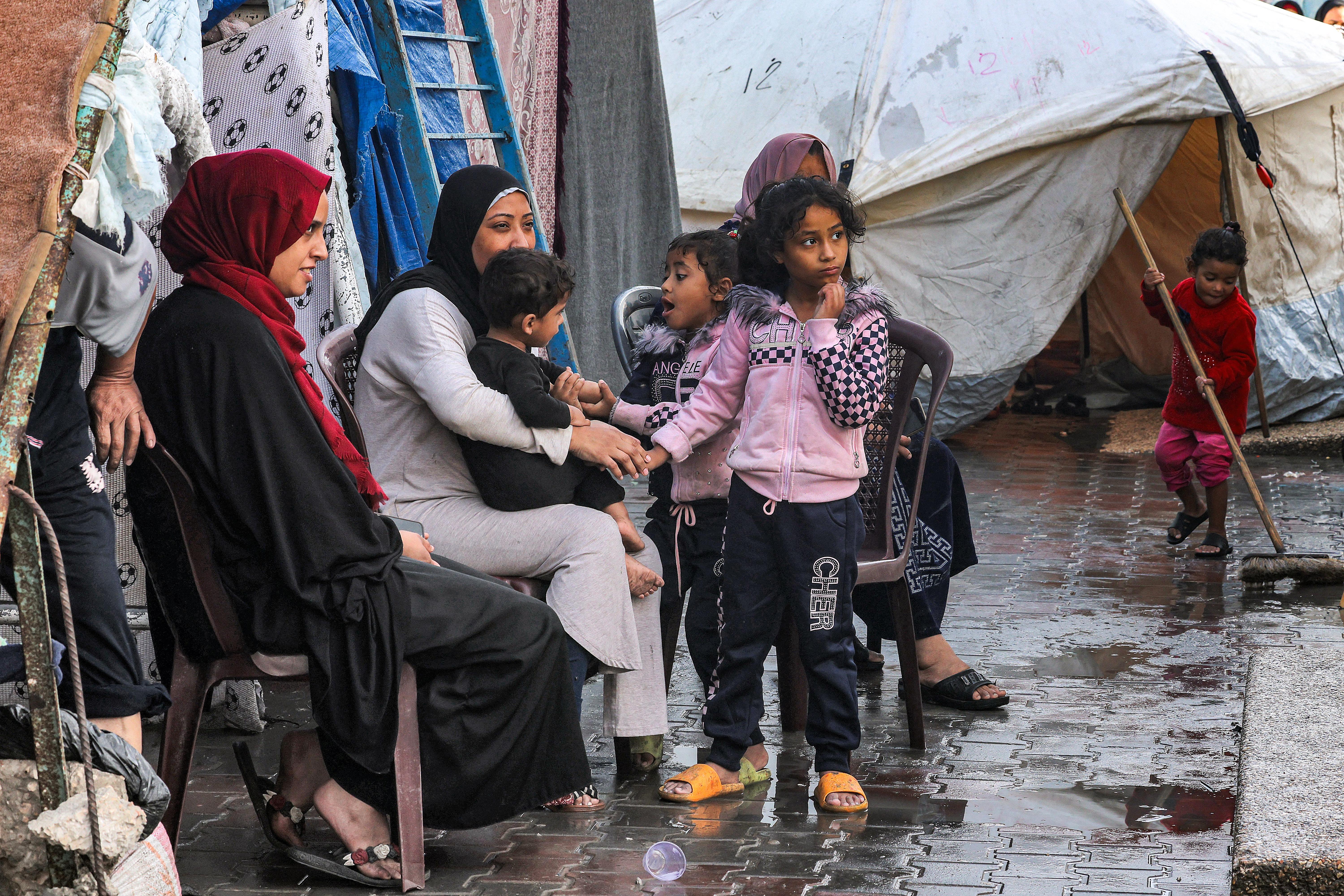 Women sit with children outside tents at a school run by the United Nations Relief and Works Agency for Palestine Refugees in the Near East (UNRWA) in Rafah in the southern Gaza Strip on Nov 14, 2023. (PHOTO / AFP)
Women sit with children outside tents at a school run by the United Nations Relief and Works Agency for Palestine Refugees in the Near East (UNRWA) in Rafah in the southern Gaza Strip on Nov 14, 2023. (PHOTO / AFP)
Speaking on Monday, Geng Shuang, China's deputy ambassador to the United Nations, once again expressed China's grave concerns about the continuing crisis in the Palestinian enclave of Gaza.
"Violence cannot bring true security. The use of force will not create lasting peace," he said.
Geng made the remarks at a United Nations conference whose major focus was on the establishment of a zone in the Middle East free of nuclear arms and other weapons of mass destruction.
China fully supports this move as it believes that it will not only provide an "important mechanism for the maintenance of long-term regional peace and security" but also help safeguard the authority and effectiveness of international nonproliferation regimes and reduce the risk of an arms race.
The Organisation of Islamic Cooperation and the Arab League on Saturday called for the creation of a nuclear-free zone in the Middle East and effective action against war crimes perpetrated by Prime Minister Benjamin Netanyahu's government in the besieged Palestinian enclave of Gaza. Such a call became an exigency after Israeli Heritage Minister Amichai Eliyahu said last week that dropping a nuclear bomb on Gaza Strip was an option.
Despite the fact that this reckless remark was criticized even by Netanyahu and the minister himself was suspended from Israeli Cabinet meetings, it nonetheless reminds the world of the reality that the sinister shadow of nuclear arms and other weapons of mass destruction should not be ignored.
The relations between different parties in the Middle East are extremely complicated. It is unrealistic to expect that the tensions between Israel and Palestine and other Arab countries, as well as those among other countries in the region, can be resolved through negotiations in a short period of time.
The worsening situation in Gaza only does a disservice to the moves that have been underway to secure lasting peace in the region.
It is essential that the United Nations demand strict adherence to relevant treaties to try and prohibit countries or forces in this region from acquiring nuclear weapons or other weapons of mass destruction.
The continuation of the conflict will only lead to its escalation, increasing the possibility of nuclear weapons or other weapons of mass destruction being used. Major countries should concentrate on leveraging their influence to bring about a cease-fire.
The intertwined historical and practical contradictions in the Middle East make the situation extremely precarious. All countries should abandon their narrow geopolitical interests and political manipulation, stop deliberately provoking confrontation in the region, and make practical contributions to securing peace and stability.


